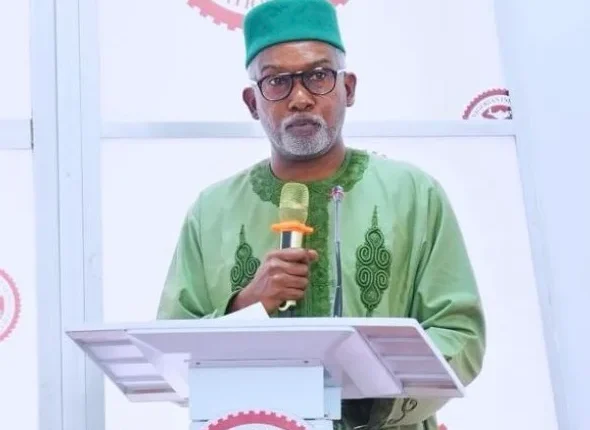Foreign Affairs minister pushes for policy renewal
Foreign Affairs minister pushes for policy renewal
The Minister of Foreign Affairs, Amb. Yusuf Tuggar, has stressed the need to advance Nigeria’s foreign policy practice and scholarship, to strengthen the nation’s global standing.
Tuggar made this known in a statement on Sunday by Kimiebi Ebienfa, spokesperson of the ministry, following his guest lecture at the Nigerian Institute of International Affairs (NIIA), Lagos.
The lecture, convened by the NIIA, was held under the theme: ‘Navigating realities: aligning Nigeria’s foreign policy practice with emerging global dynamics.’
He described NIIA as Nigeria’s foremost international think tank, noting that since its establishment 64 years ago, it has provided clarity and direction in times of global change.
According to him, the synergy between foreign policy practice and academic expertise must be deepened if Nigeria is to navigate the complexities of the 21st century.
“We meet at a time when the international system is undergoing profound transformation.
“Climate change is redrawing the geography of security. Desertification in the Sahel fuels conflict and migration.
“Artificial intelligence is redefining the future of work and the ethics of warfare, as seen in debates about autonomous weapons,” he said.
He added that transnational terrorism, exemplified by Boko Haram and ISWAP, continues to test state resilience and stability in affected regions.
“Fear of third-world migrants polarises politics in the global North, as ecofascists agitate for closing borders to preserve Western civilisation,” he noted.
He likened the trend to Jean Raspail’s dystopian novel Camp of the Saints, warning of its resonance in contemporary debates.
“Widening inequality and shifts in power distribution are reshaping the global order, creating a multipolar structure with unpredictable outcomes,” Tuggar explained.
He cautioned that major powers’ pressure on Nigeria and others to align with their blocs in this emerging multipolar world is immense.
Recalling history, he said Nigeria once faced similar pressures under a bipolar system but resisted through intellectual support from the NIIA.
That era of non-alignment, he noted, allowed Nigeria to pursue its “Concert of Medium Powers” and “Concentric Circles” strategies while many states became battlegrounds of superpower contestation.
He highlighted past ideological contestations, including the Lagos Plan of Action and the Berg Report, otherwise called the Washington Consensus.
“It was a choice between integrating African markets for manufacturing or being consigned to endlessly exporting raw materials,” he said.
However, economic pressures forced many African states, including Nigeria, into Structural Adjustment Programmes that undermined industrial policies and import substitution.
“The 21st century and new multilateral order offer opportunities in spite of challenges,” Tuggar said, noting that President Bola Tinubu’s administration has defined a foreign policy agenda for strategic autonomy.
The agenda, he explained, rests on four pillars: Democracy, Demography, Development and Diaspora.
“The idea is to avoid entangling alliances or ideological over-alignment, focusing instead on issue-based partnerships driven by shared interests and mutual purpose,” he stated.
He stressed Nigeria’s aim to preserve flexibility and autonomy, warning that binary alignments inhibit a nation of Nigeria’s size and potential to shape global order.
Tuggar underlined Nigeria’s strengths, including its large population, vast internal market and potential to mobilise defence capacity when required.
Read Also: Tinubu urges religious leaders to champion peace
He cautioned against flawed self-diagnosis, warning it could become a self-fulfilling prophecy if unchallenged.
“Strategic autonomy is not duplicity or hypocrisy. It is pragmatism. Nigeria’s foreign policy has always been guided by moral precepts and ethical considerations,” he said.
He reiterated that Africa remains a priority, stressing the importance of economic integration under the AfCFTA and cooperative defence through MNJTF, ECOWAS and the AU.
“It is time Africa defined democracy in line with its own history, cultures and traditions. No one holds a monopoly on democracy,” he added.
He said this conviction informed the creation of the Regional Partnership for Democracy (RPD) by the ministry, in collaboration with the United Nations Development Programme (UNDP).
According to him, the partnership will strengthen institutions, promote regional cooperation, and encourage open dialogue, even with opponents, to advance shared democratic values.

